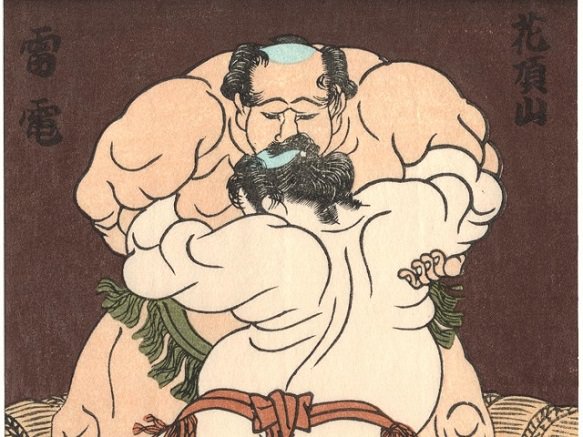-
- USA/Canada 1-800-285-2726
- Australia (02) 8006 4411

The Sumo Museum is a small museum located in the sumo stadium in Sumida. Located next to the famous Edo-Tokyo Museum, the Sumo Museum's mission is to gather and preserve a wide range of materials related to the history and traditions of sumo. Opened in 1954 and catering to sumo fans ever since, this museum contains exhibits ranging from woodblock prints and banzuke (official listings of rank) to the ceremonial aprons worn by the great rikishi of the past. The museum rotates their exhibits every two months to provide guests with a unique experience during each visit. The museum also functions as a research center, continuously studying and reviewing sumo history as an integral part of Japanese culture.
The museum itself is located near many sumo-related shops and it wouldn't be a surprise to see a sumo wrestler walking around. If you're lucky, you just might get a photo with the warriors before they're off for practice. The Sumo Museum is a great place to stop if you plan to watch a Grand Sumo Tournament in Tokyo or after a visit to the nifty Edo-Tokyo Museum next door. Don't forget, because the museum is part of the sumo stadium, you may even get to watch sumo wrestlers practice their moves. If you've wanted to see how big sumo wrestlers can get, or just want to know more about the ceremonial tradition turned sport, we highly recommend stopping by the Sumo Museum during our Japan tours in Tokyo. You can also arrange the Sumo Museum as a part of your itinerary during our a private Japan tour vacation.
Note: photography is not allowed inside the Sumo Museum.
Originally a Shinto ritual for agricultural fertility in ancient times
Museum shows how the 15th century village of Edo grew to be Tokyo
One of the 23 city wards of Tokyo and the world's busiest railway station
Meet Penguins, Sharks and Sea lions
The Samurai Museum is the ideal destination for the samurai aficionado.
The Fukagawa Edo Museum is a museum that recreates Japan's Edo Period.
In-depth history for guests about the various brewing, traditions, and significance about sake.
Museum Designed by Studio Ghibli director Hayao Miyazaki in Tokyo